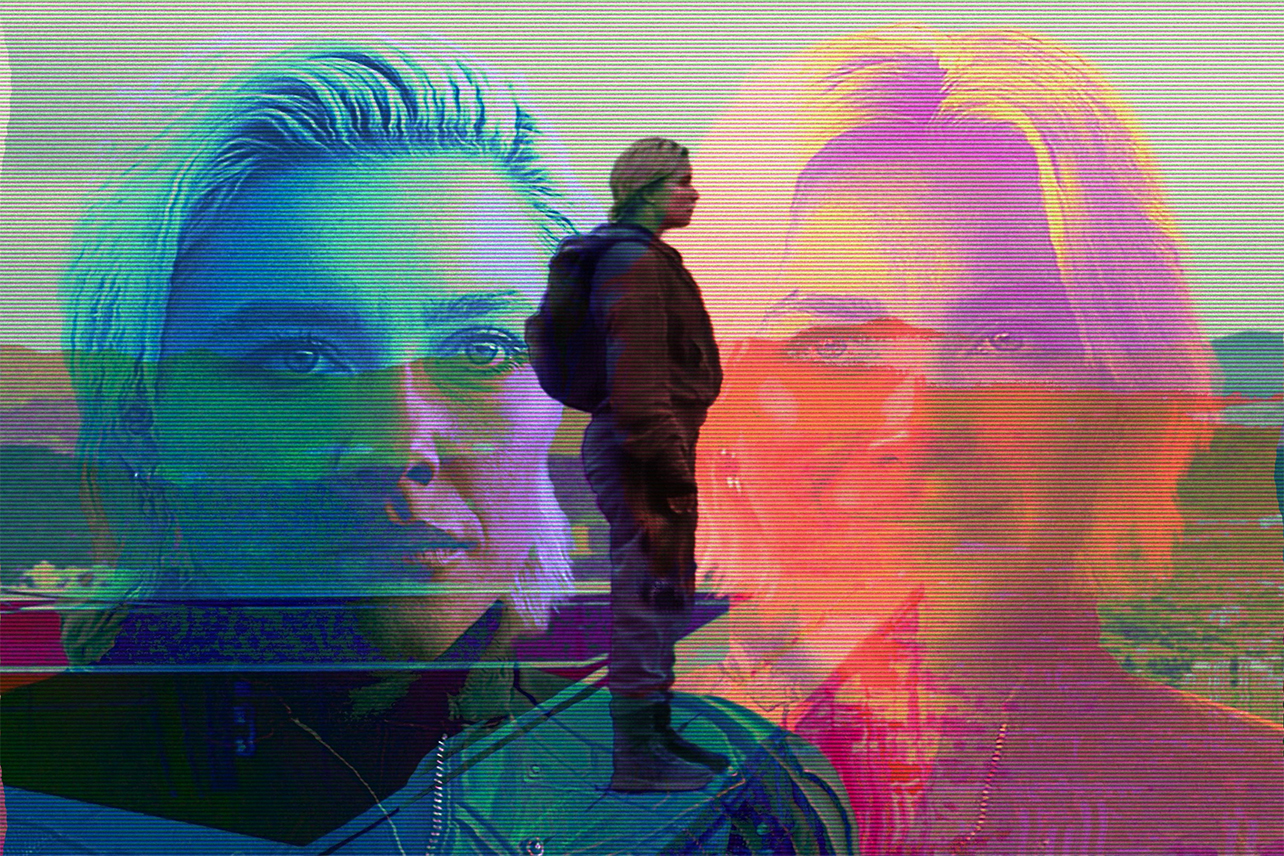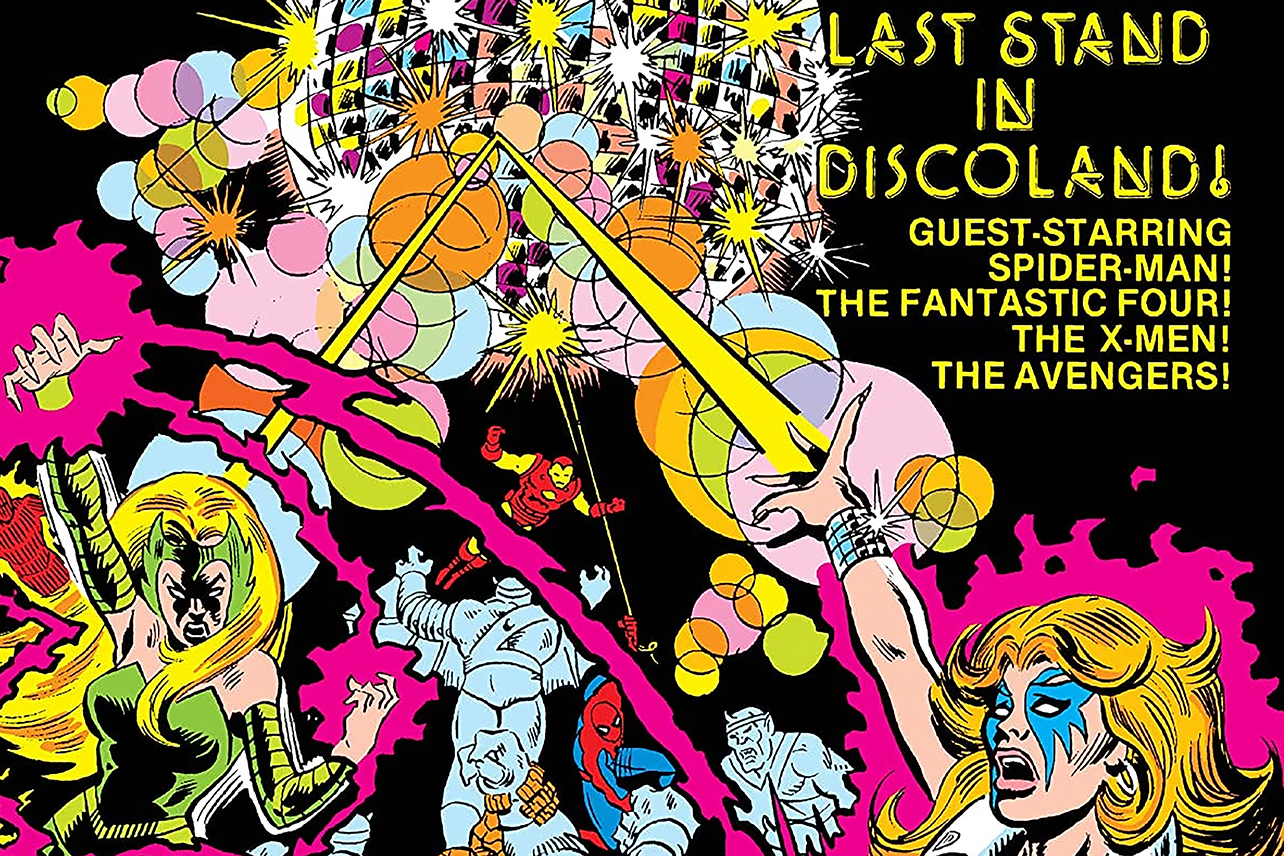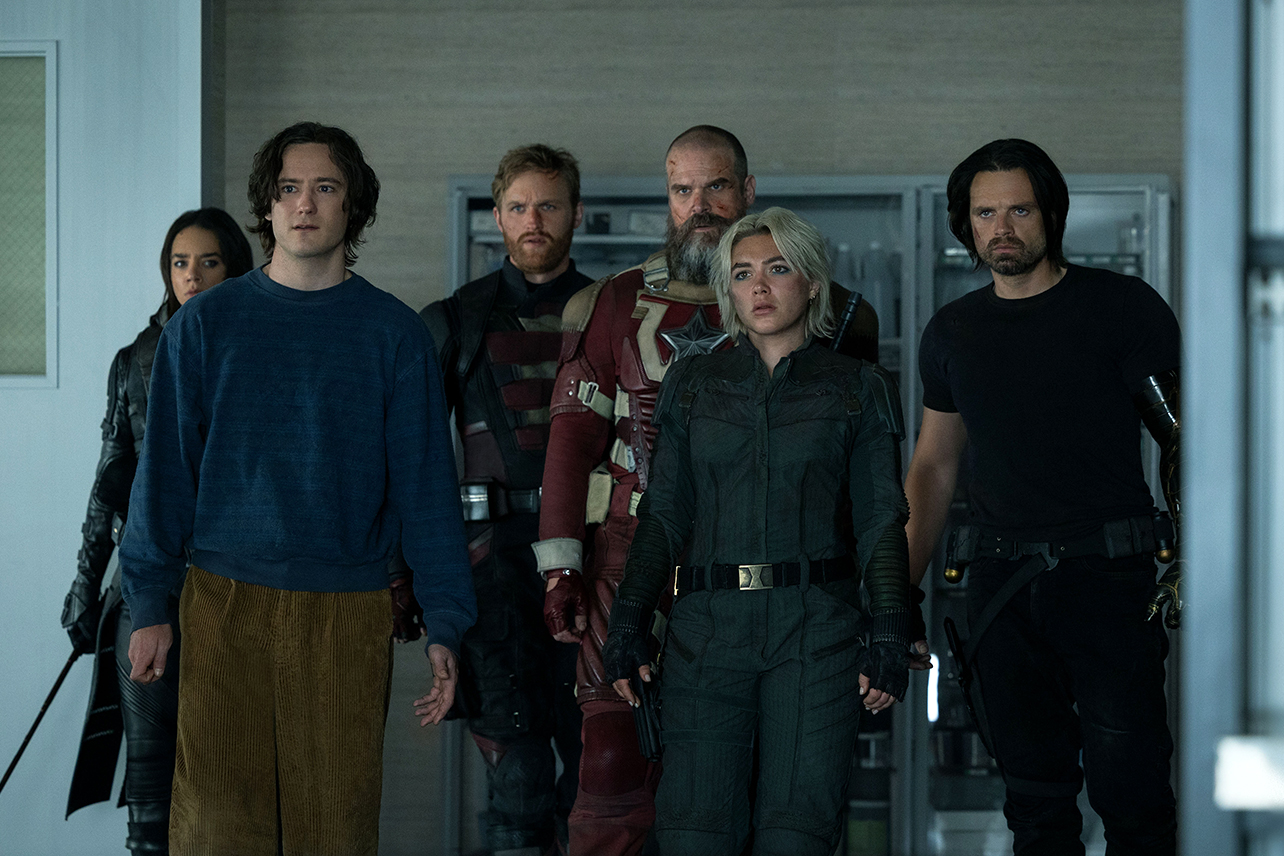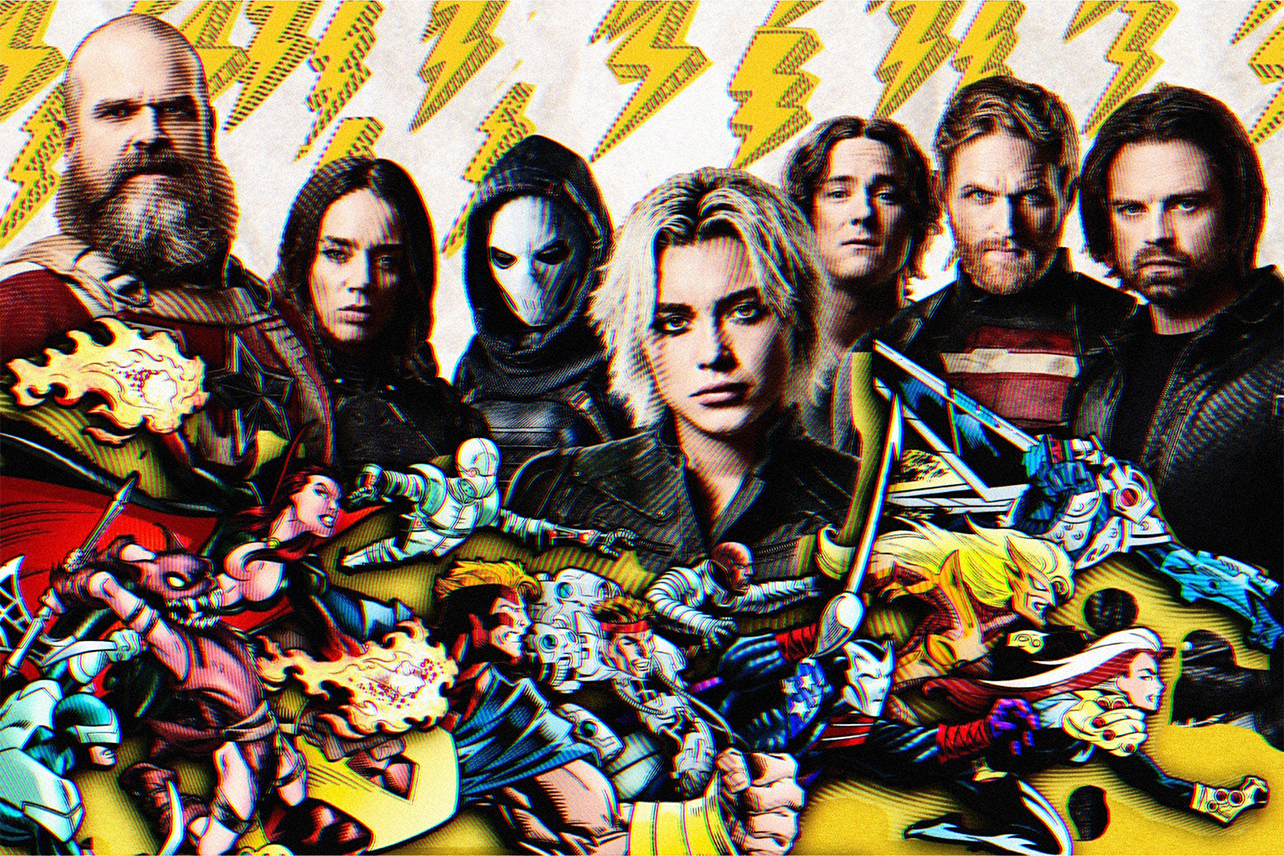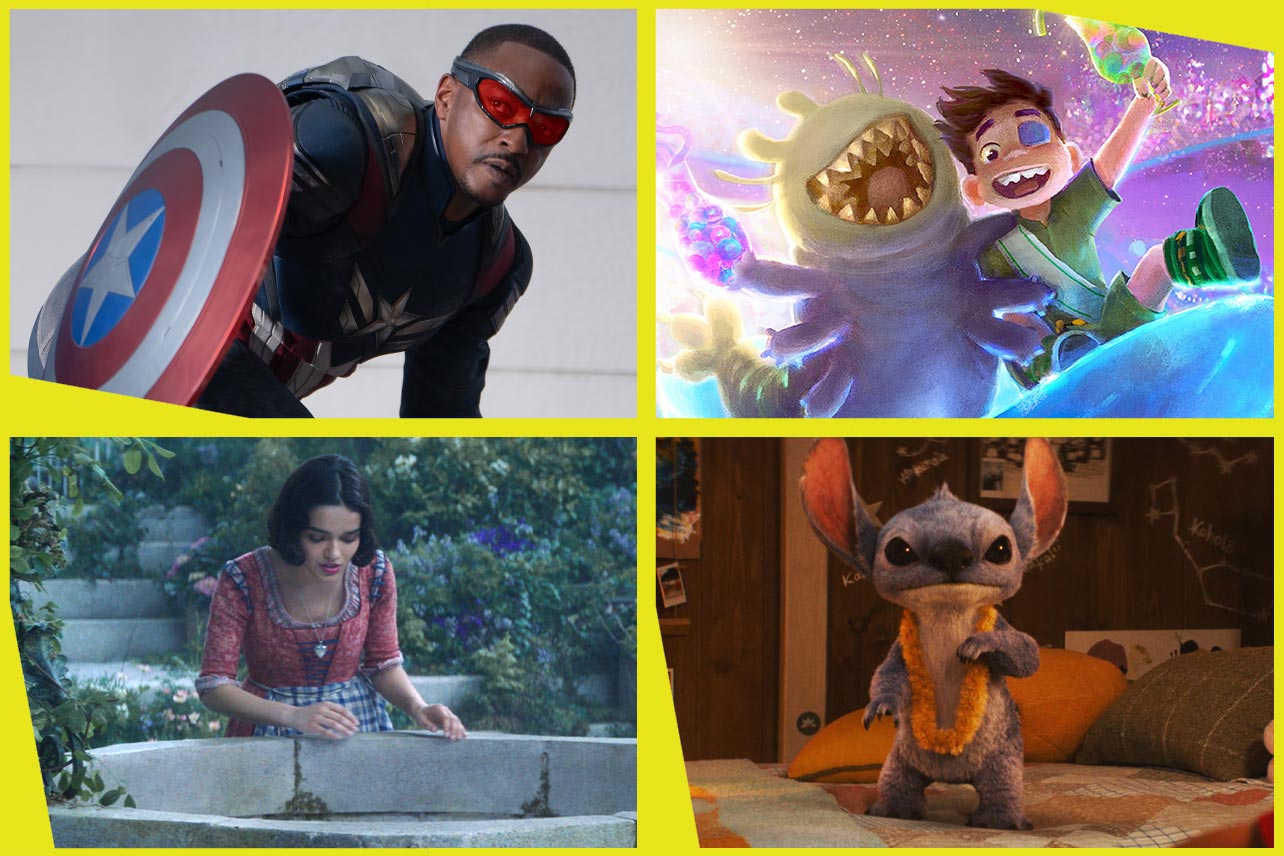"So you — you feel fulfilled?"
Florence Pugh's Yelena Belova has stayed one of the most charming and memorable of the post-Endgame MCU heroes. She hits that sweet spot of serious character who still cracks joke and oozes charm but never in a way that undercuts her emotional beats. She was both very charming and very sad in 2021's Black Widow. Her sister-chemistry with Scarlett Johansson's Natasha was top-tier. She kept that balance in Disney+'s Hawkeye too, where she arrived in NYC ready to kill Jeremy Renner's Clint Barton — and somehow accidentally formed a super wholesome friendship with Clint's new protégé, Hailee Steinfeld's Kate Bishop. Everyone fell in love with her, then Yelena disappeared from the MCU for 4 years.
Thunderbolts* opens with Yelena doing a Mission: Impossible-esque jump off the 2,227-foot Merdeka 118 in Kuala Lumpur — the second highest building in the world (a stunt Pugh insisted on doing herself). But while doing this wild stunt, she also gives a heartbreaking narration about her own depression.
"There's something wrong with me. An emptiness. I thought it started when my sister died but now it feels like something bigger. Just a … void. Or maybe I'm just bored."
Yelena is grieving the loss of her sister and also grieving the loss of the life she once had. There was a part of her life, as seen in Black Widow, that was vaguely normal — a family, a support system, people she loved. But now that is all (mostly) gone and she's left with an absent, himbo father (played wonderfully by David Harbour) who isn't so good at communicating, who doesn't quite seem to get her, and who himself is dealing with grief in his own way. She's now just a hired mercenary — she has become her job.
And, as an overworked depressed millennial who has lost his mother, ex-boyfriend, and grandma (three of his favorite people) all in the span of a few years, I immediately felt seen — which is slightly ridiculous seeing as I cannot do kick flips nor was I ever a child assassin, but here we are. It was the kind of real grief and depression speak we got from Buffy the Vampire Slayer's sixth season and MCU's other stellar project, WandaVision.
Yelena's opening jump represents a woman who has no fear, not because she's being oh so brave, but because she doesn't care if she lives or dies. In fact, she'd probably prefer the latter.
In the scene that hit the hardest, Yelena breaks down to her father after they've lost the fight against the superpowered Sentry (played by Tom Holland's tether, Lewis Pullman). Florence Pugh delivers one wildly emotional monologue. She tells her dad how lost she feels. She doesn't feel like she has a purpose. She's just existing. What is the point of anything when there's nothing — nothing to look forward to, nothing to care about?
"Daddy, I'm so alone. I don't have anything anymore. All I do is sit and look at my phone and think of all the terrible things that I've done. And then I go to work. And then I drink. And then I come home to no one. And I sit and I think about all the terrible things I've done again and again and I go crazy."
He tells her that we all have things we regret and she replies, crying, "But I have so many." She doesn't feel comforted knowing folks feel the same way because, to her, she's feeling it the most. To her, she needs something, anything to go her way. She needs a reason to keep going. And Yelena, girl, same.
But also this is not an uncommon feeling amongst most millennials — or, hell, even most folks living in the year 2025. Thunderbolts* director Jake Schreier told Vulture, "… These ideas of emptiness and depression are not niche issues anymore. Those are actually universal ideas that at this point really everyone connects with, or can admit that they connect with, and you could make a popular show that explored those things. So then the question was, Could you make a Marvel movie that did, too?"
And the answer is a resounding, "yes." The movie's action scenes and superhero-ness are almost beside the point, and I mean that in the best way possible. Sentry's evil alter-ego The Void is both a horror movie type of big bad but also a full on metaphor for the depression everyone is feeling. The Void is just a black shadow — he sends everyone to a nightmare realm and covers all of NYC in his darkness. It feels more heavy-handed when typed out than it does watching it on screen, I promise.
So when Yelena takes a deep breath and walks herself right into the darkness of The Void, the darkness that's disappearing everything it touches, it feels heavy. This is someone who has been dancing around her own suicidal ideations the whole movie, so it feels like her giving up. It feels like her embracing the darkness when she's actually facing her fears — she's decided to give it her all and try her hardest to save the day.
It's some final girl shit, honestly.
She's like Neve Campbell's Sidney in Scream or Heather Langenkamp's Nancy in A Nightmare on Elm Street. She doesn't walk into the void knowing she'll survive or save the day, but she's going to give it her best shot — depression be damned.
And, at the end of the day, I think that's pretty damn hopeful.
If you haven't already, consider supporting worker-owned media by subscribing to Pop Heist. We are ad-free and operating outside the algorithm, so all dollars go directly to paying the staff members and writers who make articles like this one possible.
